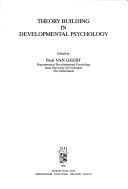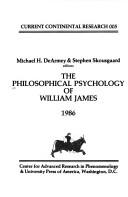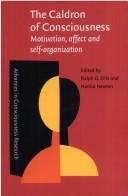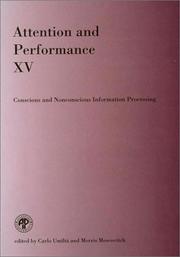| Listing 1 - 10 of 13 | << page >> |
Sort by
|
Book
ISSN: 12751804 ISBN: 9782749266572 2749266572 Year: 2020 Publisher: Toulouse : Érès éditions,
Abstract | Keywords | Export | Availability | Bookmark
 Loading...
Loading...Choose an application
- Reference Manager
- EndNote
- RefWorks (Direct export to RefWorks)
Les théories du complot sont aujourd’hui omniprésentes, si bien que nul ne saurait y échapper : on est toujours le complotiste de quelqu’un !Les analyses dominantes qui les combattent oublient l’essentiel : les conspirationnistes, comme les hystériques en leur temps, sont le symptôme de leur société. Notre société du savoir et de l’information valorise le discours technoscientifique prétendant, en vain, éradiquer l’irrationnel et les croyances, qui bien sûr sont loin d’avoir disparu !Dans ce monde où il est si difficile de « tuer le père », devenu introuvable, contester la « vérité », érigée en source du pouvoir, n’est-ce pas un moyen de résister et de s’affirmer pour les adolescents en quête d’identité ?Sans aucune complaisance pour les thèses conspirationnistes, l’auteur en propose une lecture clinique, nourrie par la démarche anthropologique et les concepts de la psychanalyse. Il se met à l’écoute des sujets, en particulier des adolescents si perméables aux « vérités alternatives ». Et si leur goût pour les histoires de conspirations n’était qu’une façon de répondre, sur un mode mythique et binaire, à l’emprise perverse de nos sociétés de contrôle ?
Book
ISSN: 22663169 ISBN: 9782706149825 2706149825 Year: 2021 Publisher: Fontaine : Presses universitaires de Grenoble,
Abstract | Keywords | Export | Availability | Bookmark
 Loading...
Loading...Choose an application
- Reference Manager
- EndNote
- RefWorks (Direct export to RefWorks)
Attentat terroriste, pandémie, catastrophe naturelle, disparition de célébrité, innovation technologique, etc., de nos jours, chaque événement majeur donne lieu à des théories alternatives à la version officielle, les théories du complot, qui se diffusent à la vitesse instantanée de l'Internet. À la lumière des études scientifiques en psychologie sur le sujet, ce livre propose d'explorer les raisons qui font que tous, nous pouvons être attirés par ce genre de récit, et de comprendre pourquoi certains y croient plus que d'autres. L'auteur interroge la rationalité de ces théories : peut-on y croire, ou doit-on s'en méfier ? Sont-elles vraies ou fausses ? Il s'attache à identifier les faiblesses du raisonnement complotiste, donnant au lecteur les clés intellectuelles permettant de contrer ce raisonnement. Utilisant la philosophie des sciences appliquée aux croyances, il met l'accent sur les démarcations entre science et croyance, permettant de faire la différence entre enquêtes et théories du complot. Ce livre permet enfin de poser une réflexion sur la méthode scientifique, la notion de doute excessif et son effet sur la démocratie. Un apport salutaire dans le contexte actuel
Conspiracy theories --- Psychological aspects --- Conspirationnisme --- Aspect psychologique. --- Conspiracy theories - Psychological aspects --- Psychological aspects. --- psychologie --- psychologie des croyances --- théories du complot --- complotisme --- conspirationnisme --- conjurationnisme --- théorie du complot --- complots --- désinformation --- infodémie --- réinformation --- pensée conspirationniste --- paranoïa --- pensée complotiste --- biais cognitifs --- pandémie --- Covid-19 --- corona --- coronavirus

ISBN: 0444700420 9786612754791 1282754793 0080866905 9780080866901 9780444700421 Year: 1986 Volume: 36 Publisher: Amsterdam North-Holland
Abstract | Keywords | Export | Availability | Bookmark
 Loading...
Loading...Choose an application
- Reference Manager
- EndNote
- RefWorks (Direct export to RefWorks)
Discussing (from various viewpoints) problems in theory building and theory evaluation, this book starts from the assumption that theories of development are particular ways of defining the concept of psychological development in terms of a specific conceptual framework, as well as in terms of a specific empirical range (nature of the explained phenomena, prototypical experiments and applications, etc.).The first three parts deal with basic problems in modern developmental psychology, namely ways of describing development and how they direct theory formation; causes and conditions of d
Developmental psychology --- Methodology --- Congresses --- Human Development. --- Psychological Theory. --- Psychology --- -Developmental psychology --- -Development, Human --- Psychology, Developmental --- Development (Psychology) --- Developmental psychobiology --- Life cycle, Human --- Psychologic Theory --- Psychological Theories --- Theories, Psychological --- Theory, Psychological --- Psychologic Theories --- Theories, Psychologic --- Theory, Psychologic --- methods. --- -Congresses --- -Development (Psychology) --- Development, Human --- -methods. --- Human Development --- Psychological Theory --- Methodology&delete& --- methods --- Humans --- Social Cognitive Theory --- Cognitive Theories, Social --- Cognitive Theory, Social --- Social Cognitive Theories --- Theories, Social Cognitive --- Theory, Social Cognitive --- Developmental psychology - Methodology - Congresses --- Developmental psychology - Congresses
Book
ISBN: 0792303490 9401075921 9400924232 9780792303497 Year: 1989 Volume: 208 Publisher: Dordrecht Kluwer
Abstract | Keywords | Export | Availability | Bookmark
 Loading...
Loading...Choose an application
- Reference Manager
- EndNote
- RefWorks (Direct export to RefWorks)
Cognitive psychology --- Theory of knowledge --- Affective and dynamic functions --- World history --- Visual perception --- Perception (Philosophy) --- Cognitive science --- History. --- Philosophy --- Cognition. --- Perception. --- Psychological Theory. --- -Perception (Philosophy) --- -Visual perception --- -Science --- Philosophy of mind --- Psychologic Theory --- Psychological Theories --- Theories, Psychological --- Theory, Psychological --- Psychologic Theories --- Theories, Psychologic --- Theory, Psychologic --- Perceptions --- Sensation --- Cognitive Function --- Cognitions --- Cognitive Functions --- Function, Cognitive --- Functions, Cognitive --- Optics, Psychological --- Vision --- Perception --- Visual discrimination --- history. --- -History --- History --- Psychological aspects --- -history. --- -Psychologic Theory --- Cognition --- Psychological Theory --- Science --- Philosophy&delete& --- history --- Social Cognitive Theory --- Cognitive Theories, Social --- Cognitive Theory, Social --- Social Cognitive Theories --- Theories, Social Cognitive --- Theory, Social Cognitive --- Sensory Processing --- Processing, Sensory --- Visual perception - History. --- Perception (Philosophy) - History. --- Cognitive science - Philosophy - History.

ISBN: 0262231530 0262285940 0585023514 9780262231534 Year: 1991 Publisher: Cambridge (Mass.) MIT press
Abstract | Keywords | Export | Availability | Bookmark
 Loading...
Loading...Choose an application
- Reference Manager
- EndNote
- RefWorks (Direct export to RefWorks)
Cognitive psychology --- Philosophy of mind in children --- Child Development. --- Infant. --- Child. --- Concept Formation. --- Psychological Theory. --- Child psychology --- Psychologic Theory --- Psychological Theories --- Theories, Psychological --- Theory, Psychological --- Psychologic Theories --- Theories, Psychologic --- Theory, Psychologic --- Concept Formations --- Formation, Concept --- Formations, Concept --- Children --- Minors --- Infants --- Infant Development --- Development, Child --- Development, Infant --- Psychology, Child --- Growth --- Philosophy of mind in children. --- Child --- Child Development --- Concept Formation --- Psychological Theory --- #PEDA *P 4.03 --- Social Cognitive Theory --- Cognitive Theories, Social --- Cognitive Theory, Social --- Social Cognitive Theories --- Theories, Social Cognitive --- Theory, Social Cognitive --- Concept Learning --- Conceptualization --- Learning, Concept --- Concept Acquisition --- Acquisition, Concept --- Acquisitions, Concept --- Concept Acquisitions

ISBN: 081915430X 9780819154309 Year: 1986 Volume: 005 Publisher: Washington (D.C.): Center for advanced research in phenomenology
Abstract | Keywords | Export | Availability | Bookmark
 Loading...
Loading...Choose an application
- Reference Manager
- EndNote
- RefWorks (Direct export to RefWorks)
Psychology --- James, William, --- Psychological Theory. --- Psychology. --- Factors, Psychological --- Psychological Factors --- Psychological Side Effects --- Psychologists --- Psychosocial Factors --- Side Effects, Psychological --- Factor, Psychological --- Factor, Psychosocial --- Factors, Psychosocial --- Psychological Factor --- Psychological Side Effect --- Psychologist --- Psychosocial Factor --- Side Effect, Psychological --- Psychologic Theory --- Psychological Theories --- Theories, Psychological --- Theory, Psychological --- Psychologic Theories --- Theories, Psychologic --- Theory, Psychologic --- Phenomenological psychology --- Psychological Theory --- Behavioral sciences --- Mental philosophy --- Mind --- Science, Mental --- Human biology --- Philosophy --- Soul --- Mental health --- Psychological phenomenology --- Psychology, Phenomenological --- Existential psychology --- Personality --- Phenomenology --- Social Cognitive Theory --- Cognitive Theories, Social --- Cognitive Theory, Social --- Social Cognitive Theories --- Theories, Social Cognitive --- Theory, Social Cognitive --- James, William, - 1842-1910 - Principles of psychology
Book
ISBN: 0710098081 9780710098085 Year: 1985 Publisher: London Routledge & Kegan Paul
Abstract | Keywords | Export | Availability | Bookmark
 Loading...
Loading...Choose an application
- Reference Manager
- EndNote
- RefWorks (Direct export to RefWorks)
Psychology --- Social psychology --- Environmental psychology --- Behavior --- Social environment --- Psychologie --- Psychologie sociale --- Psychologie de l'environnement --- Social Environment --- Environmental psychology. --- Psychology. --- Social psychology. --- Behavior. --- Social Environment. --- Social environment. --- Psychological Theory --- history --- England. --- Great Britain --- Psychology, 1869-1939 --- Environment, Social --- Social Ecology --- Ecologies, Social --- Ecology, Social --- Environments, Social --- Social Ecologies --- Social Environments --- Environment --- Psychologic Theory --- Psychological Theories --- Theories, Psychological --- Theory, Psychological --- Psychologic Theories --- Theories, Psychologic --- Theory, Psychologic --- Cognitive ergonomics --- Ecological psychology --- Ecopsychology --- Ecotherapy --- Environmental quality --- Environmental social sciences --- Human factors science --- Psychoeology --- Psychotherapy --- Ecological Systems Theory --- Mass psychology --- Psychology, Social --- Human ecology --- Social groups --- Sociology --- Behavioral sciences --- Mental philosophy --- Mind --- Science, Mental --- Human biology --- Philosophy --- Soul --- Mental health --- Psychological aspects --- Social Context --- Context, Social --- Contexts, Social --- Social Contexts --- Social Cognitive Theory --- Cognitive Theories, Social --- Cognitive Theory, Social --- Social Cognitive Theories --- Theories, Social Cognitive --- Theory, Social Cognitive --- Royaume-Uni

ISBN: 1134981082 1280328177 0203133536 9780203133538 9786610328178 661032817X 9781134981045 113498104X 9781134981083 9781134981090 1134981090 1138133035 9781138133037 041501400X 0415013992 9780415013994 9780415014007 9781138133037 Year: 1991 Publisher: London ; New York : Routledge,
Abstract | Keywords | Export | Availability | Bookmark
 Loading...
Loading...Choose an application
- Reference Manager
- EndNote
- RefWorks (Direct export to RefWorks)
Grosz gives a critical overview of Lacan's work from a feminist perspective. Discussing previous attempts to give a feminist reading of his work, she argues for women's autonomy based on an indifference to the Lacanian phallus.
Lacan, Jacques. --- Lacan, Jacques, 1901- . --- Psychoanalysis and feminism --- Women --- Psychoanalytic Theory --- Persons --- Psychological Theory --- Psychological Phenomena --- Psychologic Processes --- Psychologic Processes and Principles --- Psychological Processes --- Phenomena, Psychological --- Processes, Psychologic --- Processes, Psychological --- Psychological Phenomenas --- Psychological Processe --- Psychoanalytical Theory --- Theory, Psychoanalytic --- Oral Character --- Character, Oral --- Characters, Oral --- Oral Characters --- Psychoanalytic Theories --- Psychoanalytical Theories --- Theories, Psychoanalytic --- Theories, Psychoanalytical --- Theory, Psychoanalytical --- Girls --- Woman --- Women's Groups --- Girl --- Women Groups --- Women's Group --- Feminism and psychoanalysis --- Feminism --- Psychologic Theory --- Psychological Theories --- Theories, Psychological --- Theory, Psychological --- Social Cognitive Theory --- Cognitive Theories, Social --- Cognitive Theory, Social --- Psychologic Theories --- Social Cognitive Theories --- Theories, Psychologic --- Theories, Social Cognitive --- Theory, Psychologic --- Theory, Social Cognitive --- Person --- Psychoanalysis and feminism. --- Lacan, Jacques, --- 1 LACAN, JACQUES --- 1 LACAN, JACQUES Filosofie. Psychologie--LACAN, JACQUES --- Filosofie. Psychologie--LACAN, JACQUES --- psychology --- Lacan, Jacques --- Depth psychology --- PSYCHOANALYTIC THEORY --- Lacan, Jacques, 1901 --- -Psychoanalysis and feminism. --- -Depth psychology --- Women - psychology --- Lacan, Jacques, - 1901-1981 --- -Lacan, Jacques.

ISSN: 1381589X ISBN: 9027251363 1556191960 9781556191961 1282254901 0585461201 9786612254901 902729996X 9789027251367 9780585461205 9789027299963 9781282254909 6612254904 Year: 2000 Volume: 16 Publisher: Amsterdam Benjamins
Abstract | Keywords | Export | Availability | Bookmark
 Loading...
Loading...Choose an application
- Reference Manager
- EndNote
- RefWorks (Direct export to RefWorks)
From a neuropsychological perspective, awareness of emotions is a complex function involving several components (perceptual decoding and conceptualization, memory and attention, and psychophysiological responses). Pathological conditions of the nervous system as well as certain experimental procedures in healthy persons may induce dissociations of these components. It is suggested that perceptual awareness of an emotional stimulus requires a correct stimulus identification as well as input monitoring. Awareness of experiential qualities is a more global function involving integration of interoceptive information, formation of emotional schemas or concepts, and recall of episodic memory of past emotions. Perceptual awareness of internal or external stimulus events can be defined and measured by means of psychophysical methods. Experiental qualities, however, are difficult to assess in a reductionist/physicalist framework.
Cognitive psychology --- Philosophical anthropology --- Consciousness --- Emotions --- Motivation (Psychology) --- Self-organizing systems --- Conscience --- Motivation (Psychologie) --- Systèmes auto-organisés --- Emotional Intelligence --- Behavior and Behavior Mechanisms --- Psychophysiology --- Personality Development --- Cognition --- Psychoanalytic Theory --- Mental Processes --- Intelligence --- Psychological Theory --- Personality --- Ego --- Motivation --- Social Sciences --- Psychology --- Feelings --- Human emotions --- Passions --- Affect (Psychology) --- Affective neuroscience --- Apathy --- Pathognomy --- Disincentives --- Expectations --- Incentives --- Disincentive --- Expectation --- Incentive --- Motivations --- Drive --- Self --- Egos --- Apperception --- Mind and body --- Perception --- Philosophy --- Spirit --- Personalities --- Human Characteristics --- Psychologic Theory --- Psychological Theories --- Theories, Psychological --- Theory, Psychological --- Social Cognitive Theory --- Cognitive Theories, Social --- Cognitive Theory, Social --- Psychologic Theories --- Social Cognitive Theories --- Theories, Psychologic --- Theories, Social Cognitive --- Theory, Psychologic --- Theory, Social Cognitive --- Human Information Processing --- Information Processing, Human --- Psychoanalytical Theory --- Theory, Psychoanalytic --- Oral Character --- Character, Oral --- Characters, Oral --- Oral Characters --- Psychoanalytic Theories --- Psychoanalytical Theories --- Theories, Psychoanalytic --- Theories, Psychoanalytical --- Theory, Psychoanalytical --- Cognitive Function --- Cognitions --- Cognitive Functions --- Function, Cognitive --- Functions, Cognitive --- Development, Personality --- Child Development --- Growth --- Mind-Body Relationship (Physiology) --- Physiologic Psychology --- Physiological Psychology --- Psychology, Physiologic --- Mind-Body Relations (Physiology) --- Psychology, Physiological --- Mind Body Relations (Physiology) --- Mind Body Relationship (Physiology) --- Mind-Body Relation (Physiology) --- Mind-Body Relationships (Physiology) --- Physiologic Psychologies --- Psychologies, Physiologic --- Relation, Mind-Body (Physiology) --- Relations, Mind-Body (Physiology) --- Relationship, Mind-Body (Physiology) --- Relationships, Mind-Body (Physiology) --- Psychosomatic Medicine --- Mind-Body Relations, Metaphysical --- Behavior And Behavior Mechanism --- Social Intelligence --- Emotional Intelligences --- Intelligence, Emotional --- Intelligence, Social --- Intelligences, Emotional --- Intelligences, Social --- Social Intelligences --- Interpersonal Relations --- Learning systems (Automatic control) --- Self-optimizing systems --- Cybernetics --- Intellect --- Learning ability --- Synergetics --- Action, Psychology of --- Drive (Psychology) --- Psychology of action --- Consciousness. --- Emotions. --- Self-organizing systems.

ISBN: 0262210126 0262285363 0585105626 9780262285360 9780262210126 9780262101264 9780262515023 9780585105628 Year: 1994 Volume: 15 Publisher: Cambridge, Mass. : MIT Press,
Abstract | Keywords | Export | Availability | Bookmark
 Loading...
Loading...Choose an application
- Reference Manager
- EndNote
- RefWorks (Direct export to RefWorks)
From cybernetics to machinic philosophy -- Cybernetics and the new complexity of machines -- The in-mixing of machines: cybernetics and psychoanalysis -- Machinic philosophy: assemblages, information, chaotic flow -- Machinic life -- Vital cells: cellular automata, artificial life, autopoiesis -- Digital evolution and the emergence of complexity -- Machinic intelligence -- The decoded couple: artificial intelligence and cognitive science -- The new Al: behavior-based robotics, autonomous agents, and artificial evolution -- Learning from neuroscience: new prospects for building intelligent machines.
Personality Development --- Psychophysiology --- Psychoanalytic Theory --- Cognition --- Psychological Phenomena and Processes --- Personality --- Psychiatry and Psychology --- Psychological Theory --- Behavior and Behavior Mechanisms --- Mental Processes --- Unconscious (Psychology) --- Consciousness --- Consciousnesses --- Unconscious --- Subconscious --- Human Information Processing --- Information Processing, Human --- Psychologic Theory --- Psychological Theories --- Theories, Psychological --- Theory, Psychological --- Psychologic Theories --- Theories, Psychologic --- Theory, Psychologic --- Personalities --- Psychologic Processes and Principles --- Cognitive Function --- Cognitions --- Cognitive Functions --- Function, Cognitive --- Functions, Cognitive --- Psychoanalytical Theory --- Theory, Psychoanalytic --- Oral Character --- Character, Oral --- Characters, Oral --- Oral Characters --- Psychoanalytic Theories --- Psychoanalytical Theories --- Theories, Psychoanalytic --- Theories, Psychoanalytical --- Theory, Psychoanalytical --- Mind-Body Relationship (Physiology) --- Physiologic Psychology --- Physiological Psychology --- Psychology, Physiologic --- Mind-Body Relations (Physiology) --- Psychology, Physiological --- Mind Body Relations (Physiology) --- Mind Body Relationship (Physiology) --- Mind-Body Relation (Physiology) --- Mind-Body Relationships (Physiology) --- Physiologic Psychologies --- Psychologies, Physiologic --- Relation, Mind-Body (Physiology) --- Relations, Mind-Body (Physiology) --- Relationship, Mind-Body (Physiology) --- Relationships, Mind-Body (Physiology) --- Development, Personality --- Human Characteristics --- Psychologic Processes --- Psychological Processes --- Phenomena, Psychological --- Processes, Psychologic --- Processes, Psychological --- Psychological Phenomenas --- Psychological Processe --- Psychosomatic Medicine --- Mind-Body Relations, Metaphysical --- Child Development --- Growth --- Psychological Unconscious --- Psychology Unconscious --- Unconscious, Psychological --- Human information processing --- Mental Processes. --- Artificial intelligence. --- Artificial life. --- Cybernetics. --- Experimentele psychologie --- artificial intelligence. --- Artificial life --- Cybernetics --- 82:62 --- 82:62 Literatuur en technologie --- Literatuur en technologie --- Mechanical brains --- Control theory --- Electronics --- System theory --- Life --- AI (Artificial intelligence) --- Artificial thinking --- Electronic brains --- Intellectronics --- Intelligence, Artificial --- Intelligent machines --- Machine intelligence --- Thinking, Artificial --- Bionics --- Cognitive science --- Digital computer simulation --- Electronic data processing --- Logic machines --- Machine theory --- Self-organizing systems --- Simulation methods --- Fifth generation computers --- Neural computers --- Artificial intelligence
| Listing 1 - 10 of 13 | << page >> |
Sort by
|

 Search
Search Feedback
Feedback About UniCat
About UniCat  Help
Help News
News